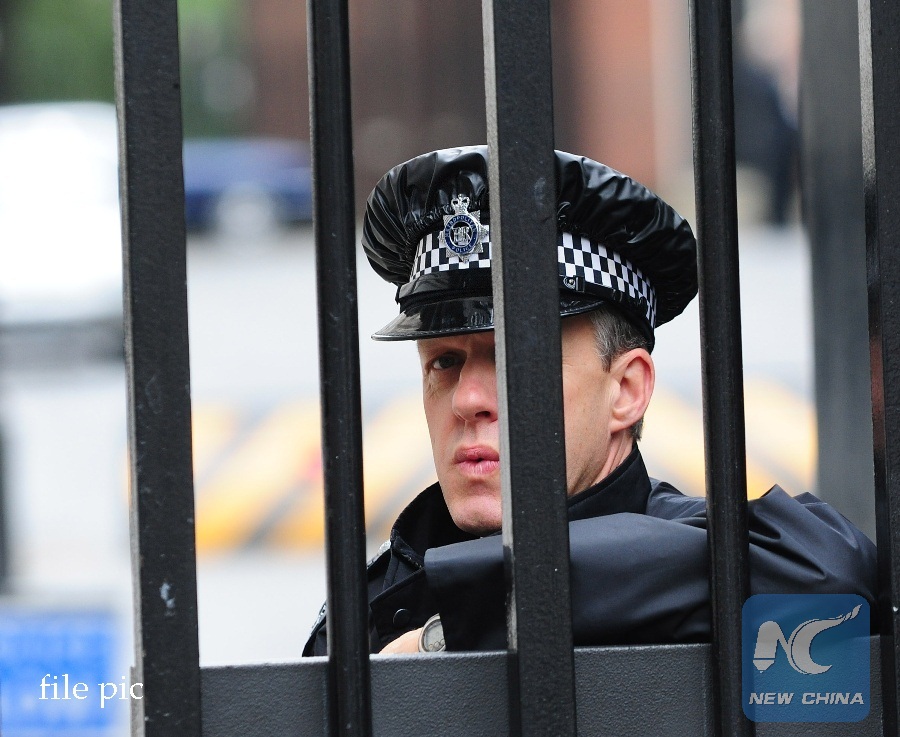
LONDON, Feb. 26 (Xinhua) -- Britain is facing a level of terrorism threat not seen since the bombings by the Irish Republican Army (IRA) in the 1970s, the country's new terrorism watchdog has warned.
Max Hill, named earlier this week as Britain's new independent reviewer of terrorism legislation, warned that so-called Islamic State (IS) terrorists are planning indiscriminate attacks on innocent civilians on a scale similar to those perpetrated by the IRA 40 years ago.
Hill, the lawyer tasked with overseeing British laws on terrorism, told the Sunday Telegraph that Islamists were targeting British cities, adding there was an "enormous ongoing risk which none of us can ignore".
He expressed enormous concern at the imminent return of hundreds of British jihadists who have been fighting for the IS in Syria.
He also warned that British teenagers as young as 14 are being radicalized online by extremist videos and hate speech.
In terms of current threats, Hill thought the intensity and the potential frequency of serious plot planning "represents an enormous ongoing risk that none of us can ignore".
"So I think that there is undoubtedly significant ongoing risk which is at least as great as the threat to London in the seventies when the IRA were active on the mainland," he said in the interview.
During the 1970s, Britain faced a concerted terrorist campaign from Irish republicans that saw bars, train stations and parliament repeatedly targeted in bomb attacks.
The so-called Troubles came to an end in the late 1990s, after the Belfast Agreement, a major political development in the Northern Ireland peace process of the 1990s, ended three decades of bloodshed in Northern Ireland.
The job, which Hill has taken over, dates back to the height of the IRA threats. It tasks him with reporting to British parliament on the state of British terror legislation as well as undertaking his own reviews.
Hill referred to the concern that hundreds of British citizens who left the country in order to fight in the Middle East are now returning to Britain, or may be about to return.
He said: "Of course the imminent fall of Mosul and perhaps the prospective retaking of Raqqa are both bound to lead to a higher instance of returning fighters. Does that mean that the British public need to be immediately alarmed at a spike in terrorist activity within this country?
"The answer to that is, I don't know, but it doesn't follow as a matter of fact that those who chose to go to live or fight abroad will bring that fight back to this country."
Hill's warning came right after five London teenagers, aged 15 to 19, were remanded in custody by magistrates charged with terrorism offences.
Four of the male teenagers are alleged to have planned to travel to Syria to join so-called Islamic State. All four are accused of plotting to carry out acts of terrorism abroad.
A fifth boy, aged 15, was accused of having terrorist materials, including IS publication Inspire and a bomb-making video.
The five will appear at the Old Bailey criminal court in London on March 17.

